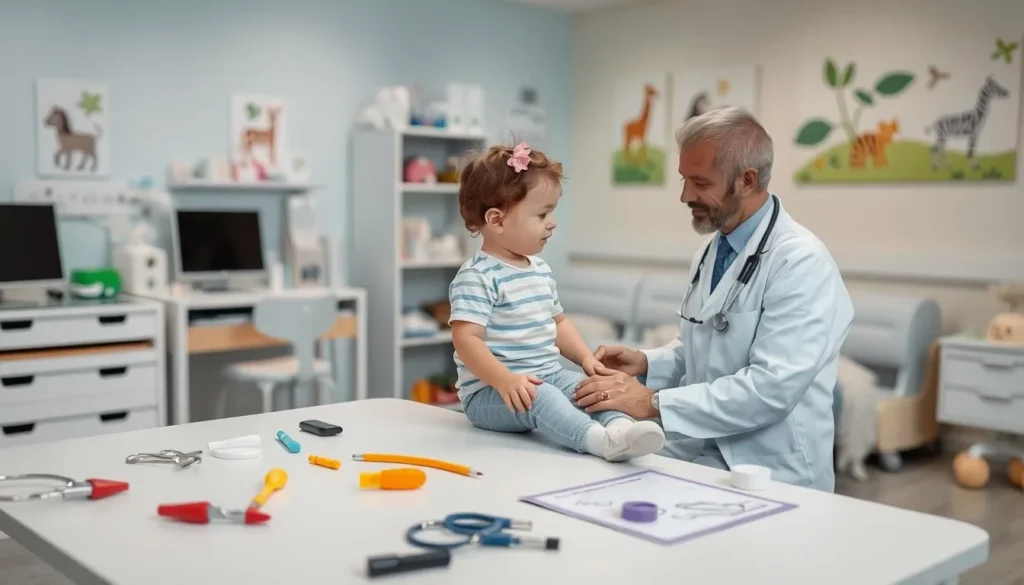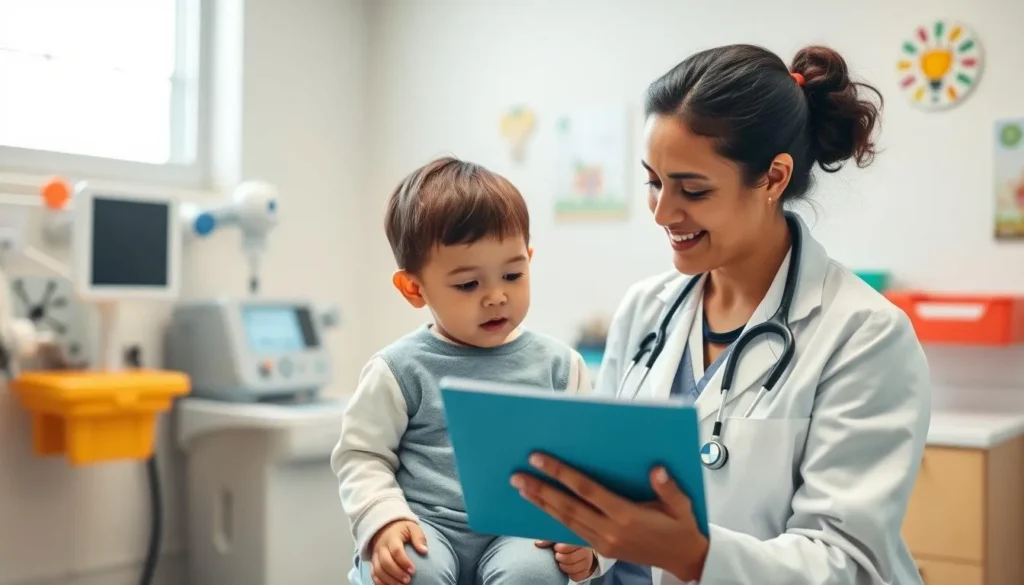
As a parent, it’s natural to worry about your child’s growth and development. If you’ve noticed delays in speech, motor skills, or social interactions, you might wonder if they need specialized care. This is where a developmental pediatrician comes in. These doctors specialize in diagnosing and managing developmental delays and behavioral challenges in children, from birth through adolescence.
According to Dr. Hisham Gadalla, MD, “Early intervention is crucial for children with developmental challenges. The sooner we identify concerns, the better the long-term outcomes for the child.
What is the role of a developmental pediatrician in New Jersey?
Developmental pediatricians in New Jersey are experts in child development and behavior. Unlike general pediatricians, who focus on overall health, developmental pediatricians assess cognitive, social, emotional, and physical development. They diagnose and manage conditions such as:
- Speech and language delays
- Autism spectrum disorder (ASD)
- Attention-deficit/hyperactivity disorder (ADHD)
- Learning disabilities
- Motor skill delays
- Emotional and behavioral disorders
If your child struggles with any of these issues, a developmental pediatrician can help by providing in-depth assessments and guiding you toward the right therapies and interventions.
Signs That Your Child Might Need a Developmental Pediatrician
Every child develops at their own pace, but some delays might indicate an underlying issue. Consider consulting a developmental pediatrician in New Jersey if your child:
- Is not speaking words by 18 months or sentences by age 2
- Struggles to make eye contact or interact with others
- Has trouble following instructions or focusing
- Walks later than expected or has difficulty with coordination
- Shows repetitive behaviors, like hand-flapping or lining up objects
- Has frequent meltdowns or difficulty regulating emotions
Early intervention is crucial. The sooner a child receives support, the better their long-term developmental outcomes.
How Do Developmental Pediatricians Evaluate Children?
The evaluation process is comprehensive, combining medical history, clinical observations, and standardized tests. A typical assessment includes:
- Parental Interviews: Gathering detailed information about your child’s development, behaviors, and medical history.
- Developmental Tests: Evaluating language, motor skills, problem-solving, and social abilities.
- Behavioral Assessments: Identifying conditions like ADHD, autism, or anxiety disorders.
- Collaboration with Specialists: If needed, referrals to speech therapists, occupational therapists, or psychologists.
After the assessment, the doctor will create a tailored intervention plan, including therapy, educational support, and strategies for home and school.
What to Expect at Your First Appointment
Preparing for your visit can make the process smoother. Here’s what you can do:
- Bring medical records and previous evaluations.
- Make a list of your concerns (e.g., difficulty with speech, attention, or social interactions).
- Observe your child’s behaviors and note any patterns.
During the visit, the doctor will interact with your child, assess their developmental milestones, and discuss potential next steps with you. The goal is to provide clarity and a roadmap for progress.

How Developmental Pediatricians Support Families
A developmental pediatrician doesn’t just diagnose a condition and send you on your way—they guide families through the journey of raising a child with developmental challenges. They provide:
- Parent coaching to help with behavioral strategies at home.
- School recommendations to ensure your child gets the right educational support.
- Emotional support for parents navigating a new diagnosis.
This partnership ensures that parents feel equipped to help their children succeed.
Common Conditions Treated by Developmental Pediatricians
- Autism Spectrum Disorder (ASD): Early signs include difficulty with eye contact, speech delays, and repetitive behaviors. Therapy can improve communication and social skills.
- ADHD: Symptoms include inattention, impulsivity, and hyperactivity. Treatment often involves behavior therapy, educational interventions, and sometimes medication.
- Learning Disabilities: Children with dyslexia or processing disorders may need specialized instruction and accommodations in school.
- Speech and Language Delays: A speech therapist can help children improve communication skills.
- Motor Skill Delays: Occupational or physical therapy can enhance coordination and strength.
How to Find the Best Developmental Pediatrician Near You
If you’re searching for a developmental pediatrician in New Jersey, start by:
- Ask your child’s pediatrician for a referral.
- Check with your insurance provider for covered specialists.
- Reading reviews and parent testimonials to learn about the doctor’s approach.
- Ensuring the doctor has experience with your child’s specific needs.
For those in New Jersey, looking for the best developmental pediatrician in NJ can be overwhelming, but focusing on specialists with strong reputations in child development can make all the difference.
Final Thoughts: Taking the Next Step
f you suspect your child may be facing developmental challenges, trust your instincts and take action early. The sooner concerns are identified, the more opportunities there are to support your child’s growth and success. A developmental pediatrician can provide expert insights, recommend the right therapies, and guide you through every step of the journey.
Don’t wait for your child to “grow out of it”—early intervention can unlock their full potential. Schedule a developmental evaluation near clifton today and give your child the best start in life.
Frequently Asked Questions (FAQ)
What is a developmental pediatrician, and when should my child see one?
A developmental pediatrician specializes in assessing children with developmental delays or behavioral challenges. If your child struggles with speech, motor skills, or social interactions, it’s best to consult a specialist for early intervention.
How is a developmental pediatrician different from a general pediatrician?
A general pediatrician handles overall health and routine checkups, while a developmental pediatrician focuses on growth, behavior, and developmental disorders.
What are signs my child may need a developmental evaluation?
- Delayed speech or difficulty understanding language
- Trouble with social interactions or play
- Difficulty focusing or hyperactivity
- Motor skill delays (sitting, walking, using hands)
- Unusual behaviors, like frequent tantrums or lack of response to their name
How is developmental delay diagnosed?
Diagnosis includes behavioral observations, parent questionnaires, skill assessments, and sometimes input from specialists like speech or occupational therapists.
What conditions do developmental pediatricians treat?
They help with autism spectrum disorder (ASD), ADHD, learning disabilities (like dyslexia), cerebral palsy, and behavioral issues such as anxiety.
How should I prepare for my child’s first visit?
Bring medical records, write down concerns, and observe your child’s behavior in different situations to share with the doctor.